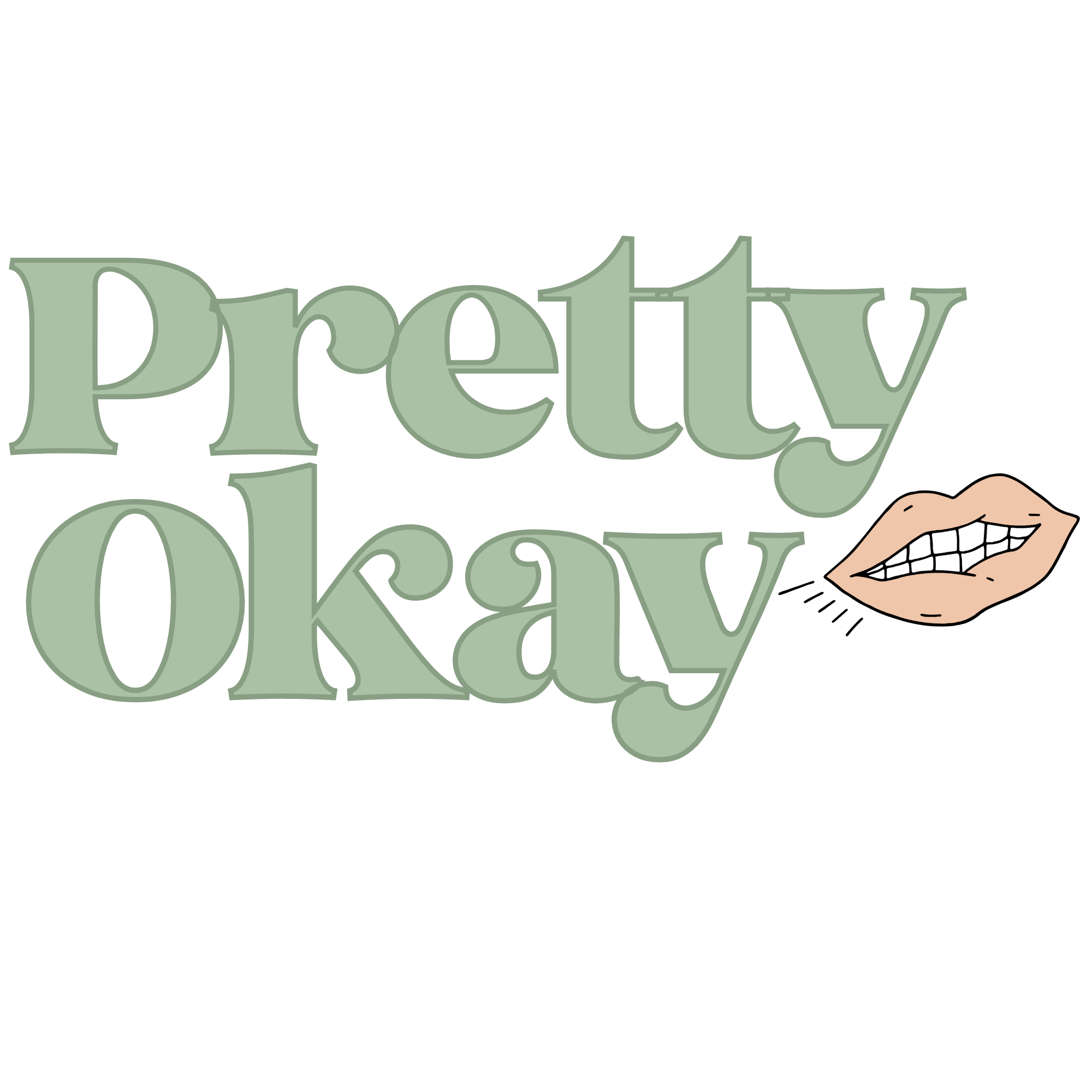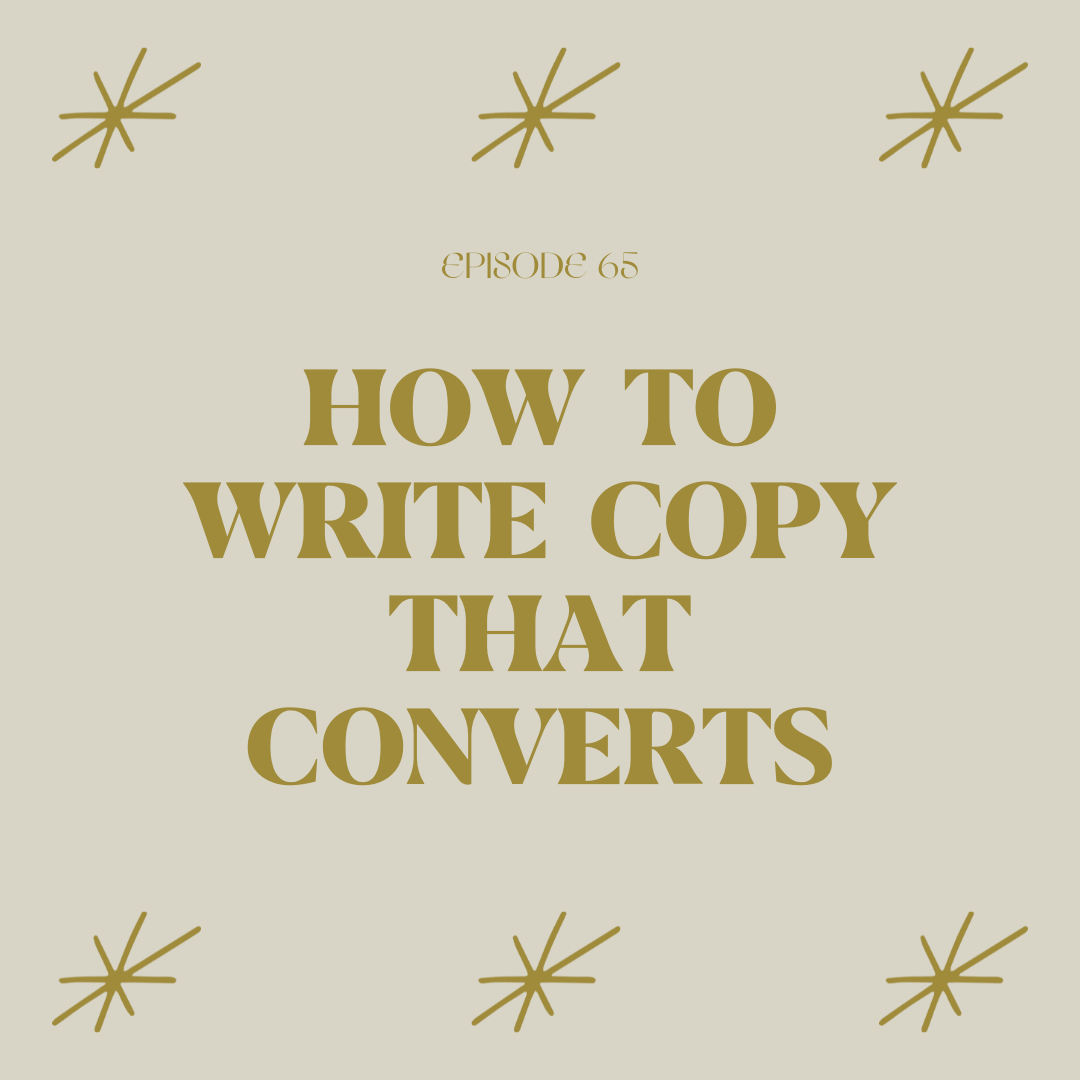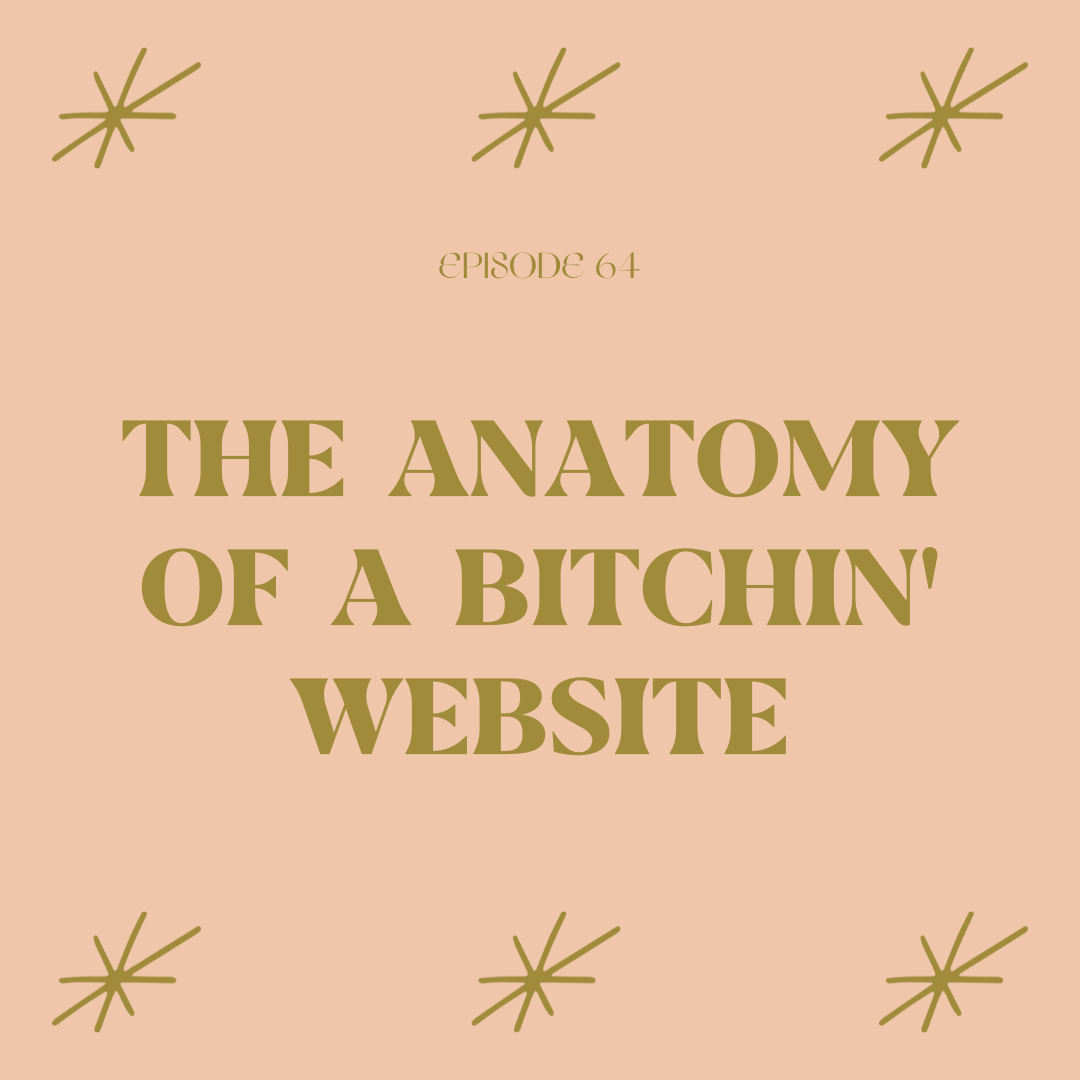How to Write Better When You're Not a Writer
Is Your Copy Badass…or Just Bad?
How to write better as a small business owner
If there is anything I know in my bones, it’s that you hate writing. The thing is, if you run a small business, you can’t escape it because marketing your business in the age of the internet requires it. So, in today’s new episode of the Pretty Okay Podcast, I invited my dear friend and word-wizard, Gillian Griffith of GG Copywriting, to talk about how to think like a copywriter as a small business owner—cuz if you don’t learn to flex this muscle, your marketing copy might suck.
✔️ Judgment-free first drafts ✔️ A permission slip to break the rules your English-teacher taught you ✔️ Stop waiting for inspiration to strike…this episode is going to kick your butt so you’re copy is covered—and you can learn how to write better as a small business owner.
1. You’ve gotta write an ugly first draft
Fact—you’re not going to write the final draft from the first keystroke. So allowing yourself to write an ugly-judgment-free first draft is super important. And you do this by letting go of your pursuit of perfection (for a bit) and just getting your thoughts down on paper because you might be shocked at how this can unlock your creative flow. So think of your first draft as an exploration of ideas, and that means there’s no need to worry about grammar or sentence structure at this stage. Write freely, without any pressure to creating a polished final product—that comes later.
2. Waiting for “inspiration to strike” is a farce
You’ve probably been fooled into thinking inspiration is a prerequisite for successful writing—nope. Because this mindset hinders productivity (did you skip the section above?!?) . So instead of waiting for the perfect moment, just start writing. And the more you write, the more ideas will come, and you'll learn how to write better through practice.
3. The rigid rules are dead
Writing is often seen as a strict discipline with stringent rules stemming from high school English classes. But real-world small business copywriting allows for creativity and rule-breaking. Embrace fragments. Start sentences with “And”. Experiment with long and short sentence structures. Seriously, play with your writing style and your brand voice to find ways to make your writing more engaging and relatable.
4. Copywriting tools and resources
As a professional copywriter, Gillian spends so much of her time thinking about words and how to string them together. Here are a few of her favorite tools you can use to become a better writer:
Thesaurus: While Stephen King suggests using the first word that comes to mind, a thesaurus can help when you need alternative language for variety.
Reading catalogs: Explore the catalogs and direct mail you receive for inspiration and fresh ideas.
Stephen King’s "On Writing": This book is a valuable resource for writers of all kinds, offering insights and techniques to improve your craft.
Keeping an idea journal: Jot down words, phrases, or concepts that catch your attention as you read, watch TV, or listen to podcasts. These notes can serve as inspiration for your next project.
Don’t limit yourself and think you can’t write good copy for your small business—you can! Use these copywriting tips and you’ll be well on your way to penning more engaging and effective copy that resonates with your audience. Happy writing!
Related episodes you should listen to
Pretty Okay Podcast sponsors!
This small business podcast is brought to you by Enji—marketing software for small business owners who have to do their own marketing but aren’t marketing experts! Start your free 14-day trial here and use the code PRETTYOKAY to get your first month free!
#notanad Looking for a podcast editor? The Pretty Okay Podcast is edited by Earfluence. We love working with them—give them a holler and tell them we sent you!


